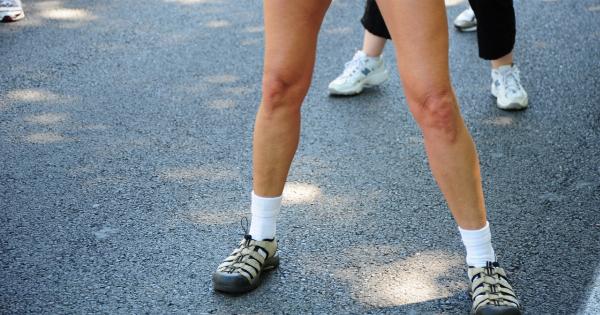Kidney disease is a chronic condition that affects millions of people worldwide. Individuals with kidney disease usually have kidneys that are not functioning correctly.
An essential function of the kidneys is to eliminate toxins and excess fluids from the body. Excess fluids and toxins, if not removed, can lead to severe health problems such as strokes, heart attacks, and even death.
In this article, we will discuss some exercises that individuals with kidney disease can do to eliminate toxins from their bodies.
Understanding Kidney Disease
Kidney disease can be categorized into two types: acute and chronic. Acute kidney disease is a sudden loss of kidney function caused by injury, toxins, or infections.
Chronic kidney disease (CKD), on the other hand, is a gradual loss of kidney function that can lead to permanent kidney failure. Individuals with CKD experience symptoms such as high blood pressure, swelling in the legs and ankles, fatigue, and difficulty concentrating.
Exercise and Kidney Disease
Exercise is crucial for individuals with kidney disease. Exercise helps improve blood pressure, reduce body fat, and increase muscle mass. Moderate exercise for about 30 minutes a day is recommended for individuals with kidney disease.
However, individuals with kidney disease may need to modify their exercise routine. Below are some exercises that individuals with kidney disease can perform to help eliminate toxins from their bodies:.
1. Walking
Walking is a low-impact exercise that is safe for individuals with kidney disease. Walking helps improve blood flow and cardiovascular health, which can help eliminate toxins from the body.
Individuals with kidney disease can start with a 10 to 15-minute walk and gradually increase the duration as they become more comfortable.
2. Yoga
Yoga is a low-impact exercise that helps promote relaxation and reduce stress. Stress can cause the body to produce toxins, which can build up and lead to health problems.
Yoga helps individuals with kidney disease manage stress, which can help eliminate toxins from the body. Individuals with kidney disease can start with basic yoga poses and gradually increase the intensity as they become more comfortable.
3. Cycling
Cycling is a low-impact exercise that is also safe for individuals with kidney disease. Cycling helps improve cardiovascular health and increase muscle mass, which can help eliminate toxins from the body.
Individuals with kidney disease can start with a stationary bike and gradually increase the intensity as they become more comfortable.
4. Strength Training
Strength training is an exercise that helps increase muscle mass and improve cardiovascular health. However, individuals with kidney disease need to be cautious when performing strength training exercises.
They should avoid lifting heavy weights and perform exercises that are less strenuous, such as using resistance bands.
5. Water Aerobics
Water aerobics is a low-impact exercise that is ideal for individuals with kidney disease. Water exercises help improve cardiovascular health and increase muscle mass, which can help eliminate toxins from the body.
Water provides a low-impact environment that can reduce the risk of injury.
Diet and Kidney Disease
Diet plays a critical role in managing kidney disease. Individuals with kidney disease must follow a low-protein, low-sodium, and low-potassium diet.
A dietitian can help individuals with kidney disease create a meal plan that meets their nutritional needs. Below are some dietary changes that individuals with kidney disease can make to help eliminate toxins from their bodies:.
1. Reduce Salt Intake
Salt intake should be limited to 2,300mg per day for individuals with kidney disease. Salt can cause the body to retain fluids, which can lead to swelling and high blood pressure.
Swelling and high blood pressure can cause the body to produce toxins that can harm the kidneys. Limiting salt intake can help reduce the risk of these health problems.
2. Reduce Protein Intake
Individuals with kidney disease should limit their protein intake to 0.8 grams per kilogram of body weight per day. Protein can increase the workload on the kidneys, which can lead to the buildup of toxins.
Reducing protein intake can help reduce the workload on the kidneys and help eliminate toxins from the body.
3. Consume Foods High in Fiber
Foods high in fiber, such as fruits, vegetables, and whole grains, help eliminate toxins from the body. Fiber helps regulate the digestive system and remove waste products from the body.
Individuals with kidney disease should aim to consume at least 25 grams of fiber per day.
4. Drink Plenty of Water
Drinking enough water is important for individuals with kidney disease. Water helps eliminate toxins from the body by flushing them out through urine.
However, individuals with kidney disease may need to restrict their fluid intake depending on the severity of their condition. A healthcare provider or dietitian can help determine the appropriate fluid intake for an individual.
Conclusion
Exercise and diet are important for individuals with kidney disease. The exercises listed above can help eliminate toxins from the body, improve cardiovascular health, and increase muscle mass.
Dietary changes such as reducing salt and protein intake and consuming foods high in fiber can also help eliminate toxins from the body. Individuals with kidney disease should consult with a healthcare provider or dietitian before starting an exercise program or making dietary changes.






























